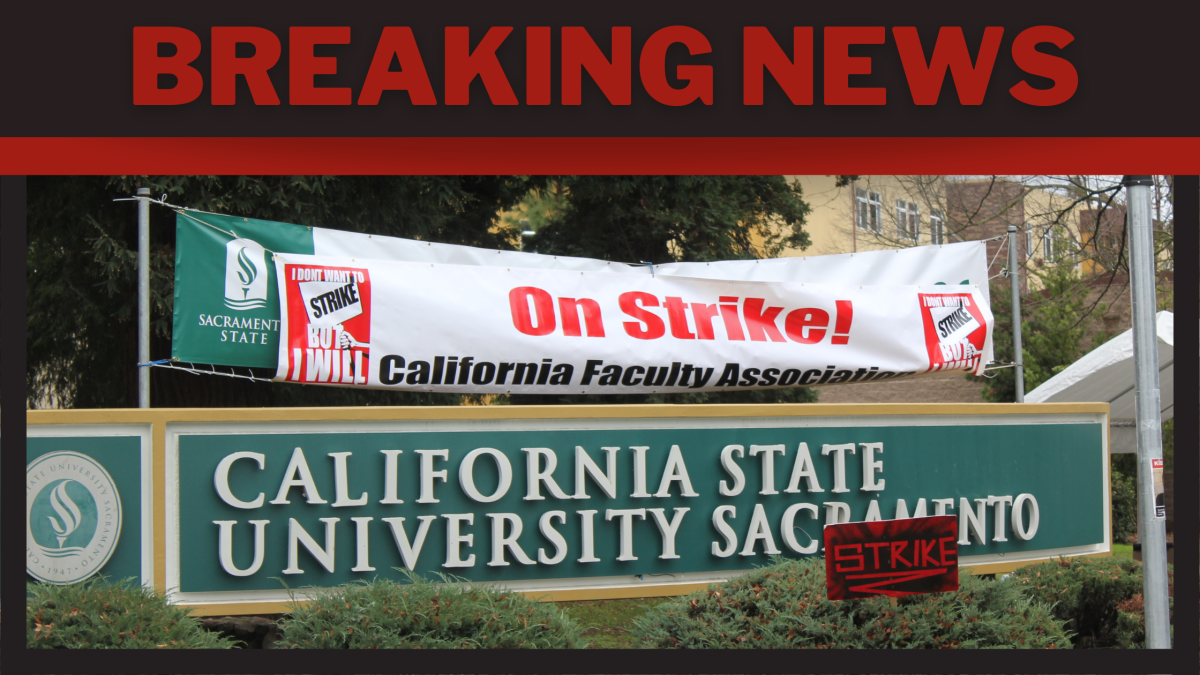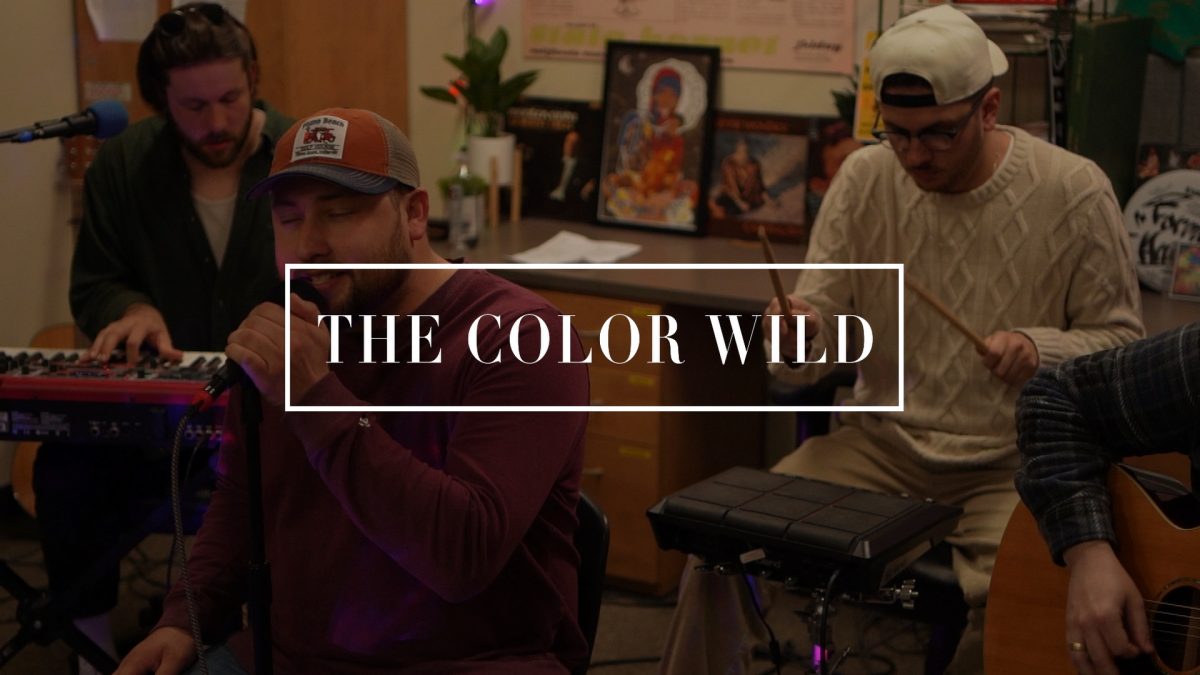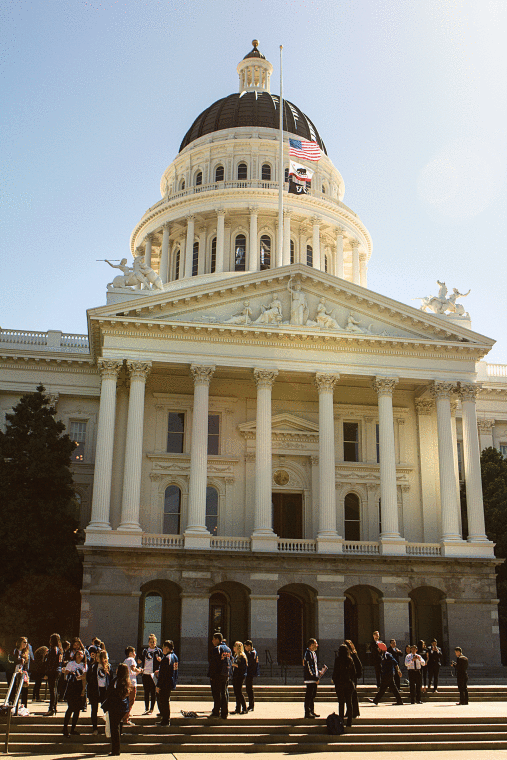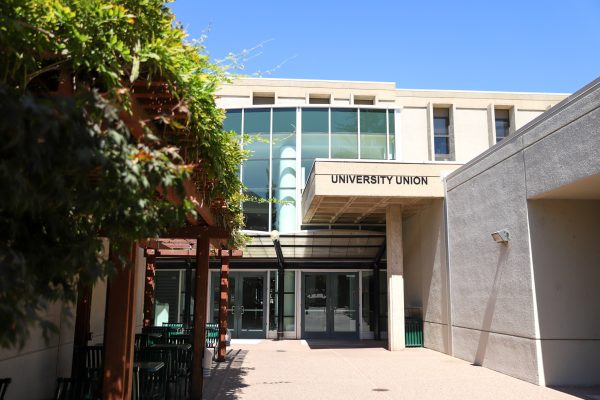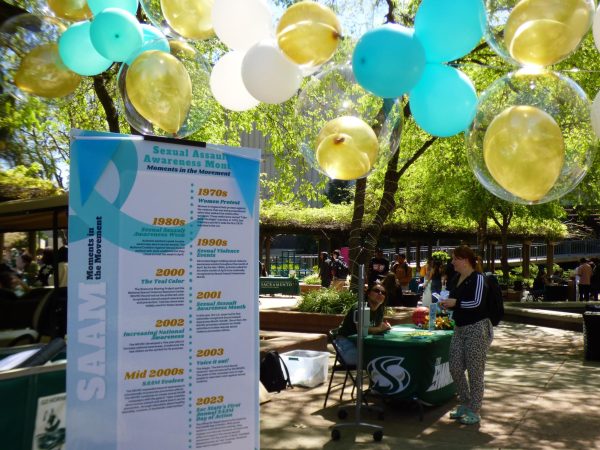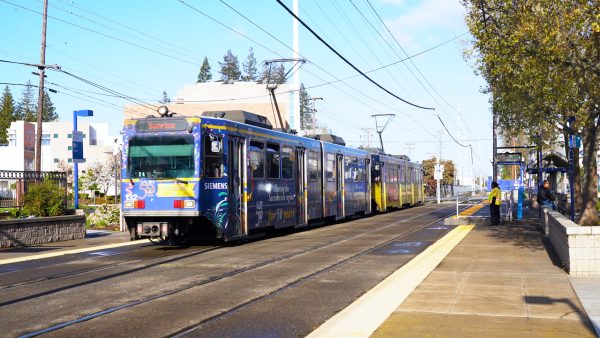California State Student Association hosts student meetings with legislators
March 11, 2014
Students from all 23 California State University campuses attended the California Higher Education Student Summit this past weekend to meet with state legislators at the State Capitol and advocate in support of higher education.
For the past 19 years, the California State Student Association has hosted CHESS to provide students with the skills and empowerment necessary to demand for a quality and affordable education.
“Advocacy Day is an opportunity on Monday for campus teams to meet with legislatures to talk about issues important to that campus [and] issues that are important to students system wide,” said CSSA Executive Director Miles Nevin. “A lot of those meetings will be where students leaders will thank legislatures for their support or communicate with that legislature their concerns.”
Before meeting with legislative representatives, CHESS attendees were trained Sunday on how to lobby for issues in a precise and effective manner.
Students attended workshops on how to cover issues like college affordability, achievement gaps and the state budget.
CSSA President Sarah Couch said students are prepared to be as educated as possible in what is going on.
“It’s a very exciting time where everyone is energized and informed about their education and actually having the opportunity to advocate for themselves is amazing,” Couch said.
CSSA Government Relations Student Assistant Robert Frazier said CHESS is the chance for students who are far away from the capitol to finally get their voice heard.
“The key things [CSSA] stress is (that) legislatures serve us,” Frazier said. “We have elected them and they are there to help us.”
Each representative of the CSU campuses had the opportunity to discuss issues affecting their school and issues they learned about during the workshops.
Although all campuses had individual issues to address, CSU’s main focus this year was to advocate for an increase to Gov. Jerry Brown’s budget proposal.
The CSU Board of Trustees asked for a $237 million increase in November, but Brown is only offering a total of $142 million, which is a 5 percent increase from last fiscal year.
“The board of trustees has asked for certain number of dollars and (Brown) has countered with another number,” said CHESS attendee Zachary Corbo. “But unfortunately, the number is not where we need it to be most effective to we as students.”
Students are asking for the extra $95 million to alleviate bottleneck courses, apply more research projects and expand online concurrent enrollment courses, Corbo said.
“We’re looking for [state legislatures] to really understand the issues that the CSU and its students are currently facing,” Corbo said. “Some of the challenges we’ll have over the coming years is obviously funding.”
One of Sacramento State’s goals was to advocate for infrastructure, specifically in the science buildings, which are more than 50 years old.
“We actually had to shut down one of the chemistry labs and that made it so there were less classes available, further impacting our students,” Couch said. “We’re trying to evaluate how we can repair our buildings or create new buildings. That’s just an issue that happens in a number of campuses.”
Since students only had 15 to 30 minutes to meet with legislatures, their training also consisted in mock lobbying, where CSSA walked students through steps in how to schedule and confirm meetings and how to plan out what to say.
Nevin said students were ready to meet with legislators to discuss issues that actually matter.
“Students are not just showing up at the capitol knocking on doors,” Nevin said. “They have meetings. They have agendas, (and) they have tangible issues they’re going to be approaching. In certain cases, there are tangible requests for these legislators, such as ’will you reinvest in higher education in California after all those years of cuts?’”









